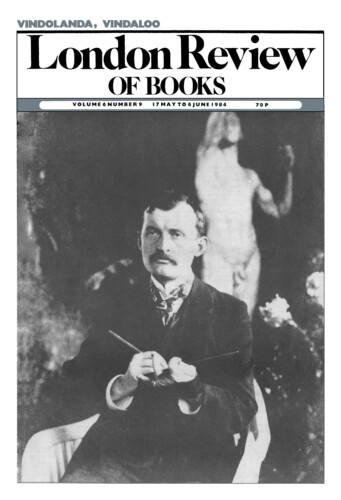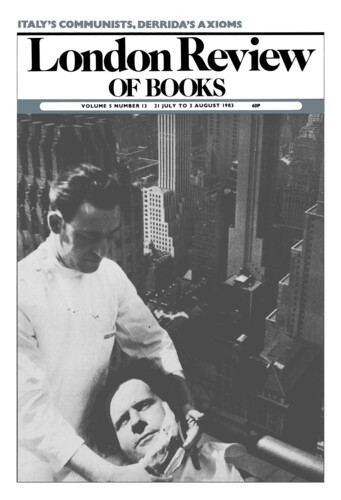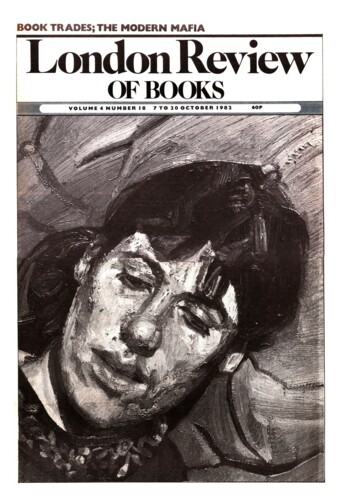The Art of Denis Mack Smith
Jonathan Steinberg, 23 May 1985
There are not many historians who matter. Not many whose works have changed the way people see themselves. Of that little list, there is an even smaller number whose works have mattered to those in another society. The obscure American naval captain Alfred Thayer Mahan was one. His Strategy of Sea Power, published in 1890, had earned him honorary degrees in Oxford and Cambridge by 1893: Mahan told an anxious British public what it most wanted to hear about its navy. Denis Mack Smith is another. His Cavour and Garibaldi, published in 1954, told many Italians what they did not want to hear, but told them at a special point in their history when they had no choice but to listen. Denis Mack Smith became and has remained one of the most important historians of Italy. His confrontations with Renzo De Felice over their respective interpretations of Mussolini have taken place before huge audiences of Italian television watchers and his books are widely available everywhere in Italy. Readers of history in this country now have an unusual chance to get to know Mack Smith’s work at its very best. Weidenfeld and Nicolson published his new biography of Cavour a few weeks before the Cambridge University Press reissued Cavour and Garibaldi. The English-speaking reader has the first full-scale biography of Cavour for more than fifty years to compare with the book that made Mack Smith famous in Italy.





